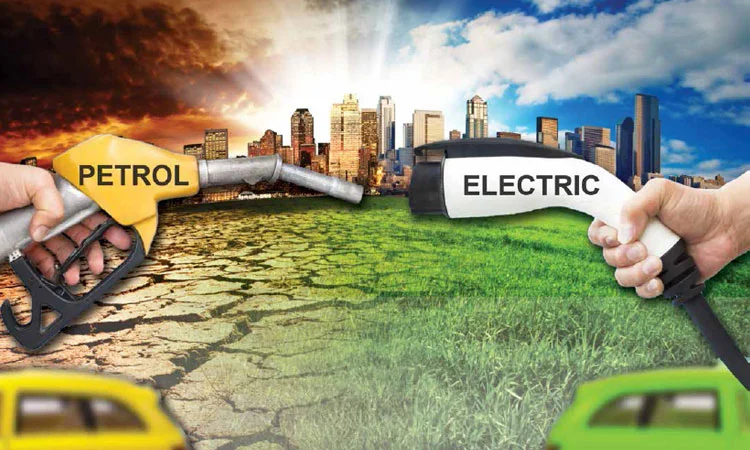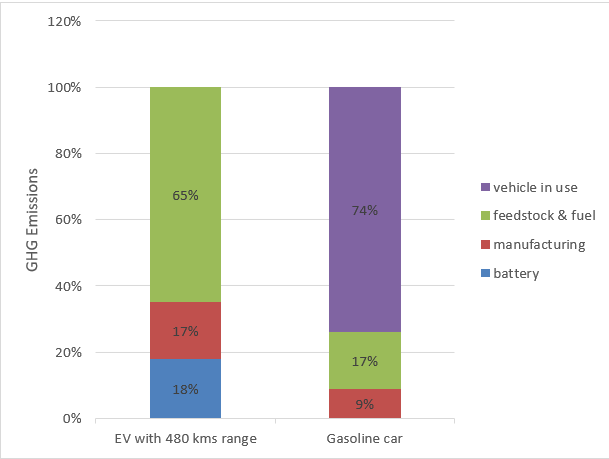Circulating myths claim electric vehicles hurt the environment. This post explores the facts – EVs boast lower lifetime emissions despite higher manufacturing footprint compared to gasoline cars. Learn more about EV benefits and the future of battery recycling!

There’s a misconception going around that electric vehicles (EVs) are worse for the environment than gasoline cars. This mainly stems from concerns about the emissions produced during EV battery manufacturing. But fear not, eco-conscious drivers! Here’s the truth: EVs boast a significantly lower lifetime greenhouse gas (GHG) footprint compared to gasoline vehicles, even considering battery production and future can be electric because of this reason.
EVs vs. Gas Cars: A Lifetime Emission Showdown
While manufacturing an EV battery does generate emissions, it’s outweighed by the significant advantages EVs hold:
- Zero Tailpipe Emissions: Unlike gasoline cars that constantly pump out pollutants, EVs produce zero emissions while driving. This is a major win for air quality, especially in urban areas.
- Cleaner Electricity: EVs are powered by electricity, and the emissions for generating electricity are constantly decreasing as the grid shifts towards renewable sources like solar and wind.
Studies by Argonne National Laboratory back this up. Their research shows that EVs have a lower overall GHG footprint than gasoline cars, even factoring in battery production.

Here’s a breakdown of the emission sources
- Manufacturing: EVs do have higher emissions in this stage due to the battery. However, the rest of the vehicle’s manufacturing process is comparable to gasoline cars.
- Fuel Production: This is where EVs truly shine. Producing electricity generally creates less emissions than extracting, refining, and transporting gasoline.
- Vehicle Operation: This is a clear win for EVs. They have zero tailpipe emissions, while gasoline cars constantly emit pollutants.
- End-of-Life: Recycling EV batteries is still under development, but advancements are happening. Recycling reduces the need for new materials, lowering the environmental impact.
The Future is Electric (and Green!)
The environmental benefits of EVs go beyond just lower emissions. They also contribute to:
- Reduced reliance on fossil fuels: This translates to greater energy independence and security.
- Improved air quality: EVs can significantly reduce air pollution in cities, leading to better public health.



